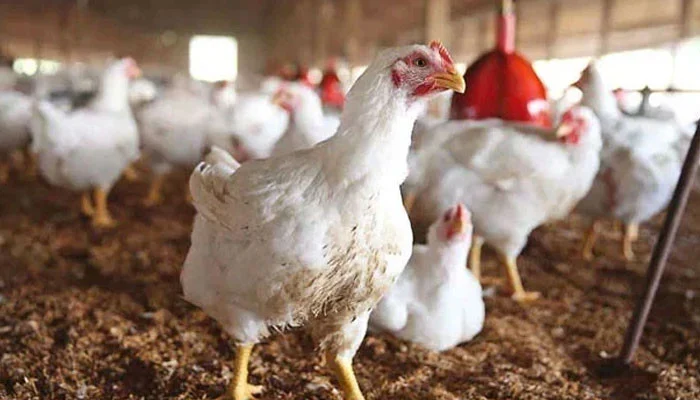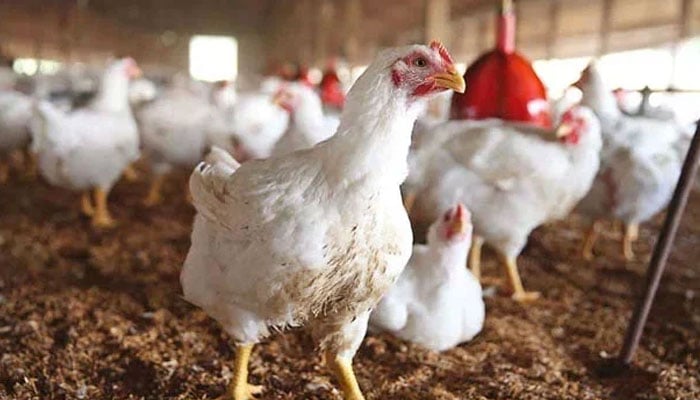
LAHORE: The federal government has launched a renewed drive to curb the smuggling and illegal export of poultry products following a high court petition that highlighted a surge in cross-border movement of live birds, meat, and other edible commodities, potentially undermining domestic food supplies and prices.
In a formal communication, a copy of which is available with The News, circulated to all four provincial chief secretaries, the Federal Board of Revenue (FBR), and senior paramilitary commands, the Ministry of Interior and Narcotics Control directed immediate tightening of anti-smuggling operations and surveillance at the country’s international borders. The letter sent by Ministry’s (Frontier Corps) wing underlined that while repeated instructions had earlier been issued, the matter had assumed renewed urgency following judicial intervention.
According to the ministry’s notification, a writ petition has been filed before the Peshawar High Court titled Peshawar High Court vs Federation of Pakistan and others, challenging the unchecked smuggling and export of day-old chicks, poultry, chicken meat, and other edible items across Pakistan’s frontiers.
The communication emphasized that such activity must be “stopped immediately” through enhanced field vigilance and coordinated inter-agency action.
The ministry revealed that 57 joint check-posts have already been established across key border corridors in coordination with provincial and paramilitary authorities. These posts are part of a broader federal strategy to stem the outflow of essential food items amid concerns that persistent cross-border leakages are aggravating shortages and price volatility in domestic markets.
The directive was addressed to the chief secretaries of Punjab, Sindh, Balochistan, and Khyber Pakhtunkhwa, as well as to the Inspectors General of the Frontier Corps (North and South) and the Director Generals of Pakistan Rangers (Punjab and Sindh) and Pakistan Coast Guards. The ministry urged all these formations to beef up anti-smuggling patrols, conduct intelligence-based operations in border districts, and enhance coordination with local law enforcement to ensure tangible results on the ground.
Officials were instructed to furnish compliance reports to the Interior Ministry without delay to enable Islamabad to proceed with monitoring and enforcement measures at the federal level. The letter was also sent to the Additional Secretary, Civil Armed forces (CAF) for follow-up action.
Senior officials told The News that the renewed federal emphasis reflects growing concern over the illegal export of poultry and meat to neighbouring countries, particularly through unfrequented crossings in Balochistan and Khyber Pakhtunkhwa. The practice, they said, not only strains local supplies but also affects poultry farmers and meat processors who face inconsistent market conditions.
“The Interior Ministry’s communication signals a coordinated federal-provincial response to food-commodity smuggling, which has become an economic as well as governance issue,” said one senior official on condition of anonymity. “The court’s notice has effectively compelled agencies to demonstrate tangible enforcement.”
The directive is expected to lead to heightened inter-agency cooperation among the FBR, provincial home departments, Rangers, Frontier Corps, and Coast Guards — particularly along the Afghanistan and Iran borders — where informal trading routes have historically enabled the movement of livestock, poultry, and edible commodities despite existing prohibitions.
Officials said that compliance reports from provincial governments and security formations would be reviewed by the ministry in the coming weeks to determine the effectiveness of the measures and identify loopholes requiring additional administrative or legislative action.
The move comes as Pakistan continues to grapple with rising food inflation, driven partly by supply disruptions and external leakages. Economists have repeatedly warned that unmonitored outflows of essential commodities such as poultry and meat can trigger artificial shortages and speculative pricing — further burdening consumers amid already strained household budgets.





